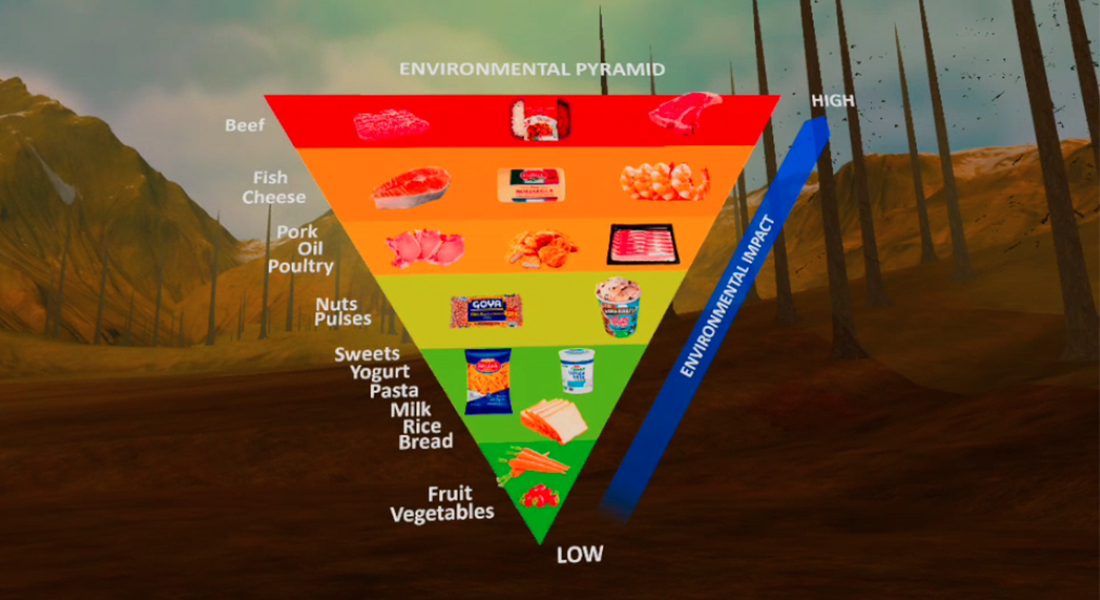Sustainable eating

The goal of this study is to promote a switch to more sustainable diets. It is a simulation that has an educational part, where we explain how the food industry contributes to the overall emissions, and show which foods are good or bad for the environment.
Another important part is that participants travel to the future, to see the impact of their food choices on the natural environment. This part is focused on eliciting response efficacy (showing that our actions matter).
Later, participants are asked to select foods again, this time with guidance over which are of lower environmental impact, and then they experience restoration of the environment, based on how much better their new choices were. This way we are aiming at promoting self-efficacy as well.
We have performed 3 studies using this simulation:
- Study with Danish middle school students, where we showed that the self-efficacy part leads to a larger increase in intentions and transfer of knowledge, which is mediated via the increase in self efficacy.
- The second experiment was an online study, where we administered this simulation to 122 American residents that are Oculus Quest owners. We found a significantly large decline in dietary footprint reported one week after the intervention, which was indirectly influenced by the increase in intentions, self-efficacy and negative emotions (towards climate change).
- The third study was with Educational Psychology students, and we show that they also decreased their dietary footprint, but here we compared it to a control group which increased the dietary footprint.
Read some of the papers related to this project here:
